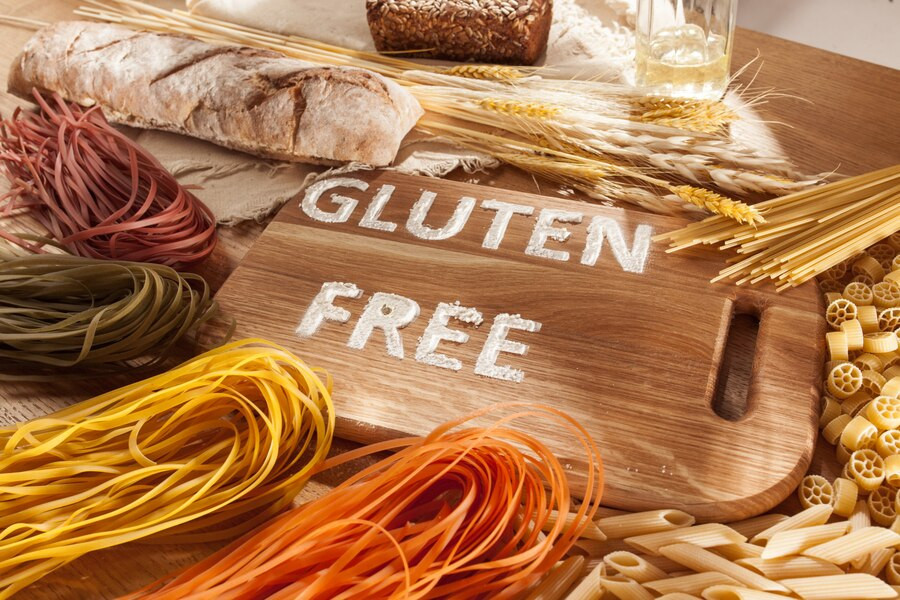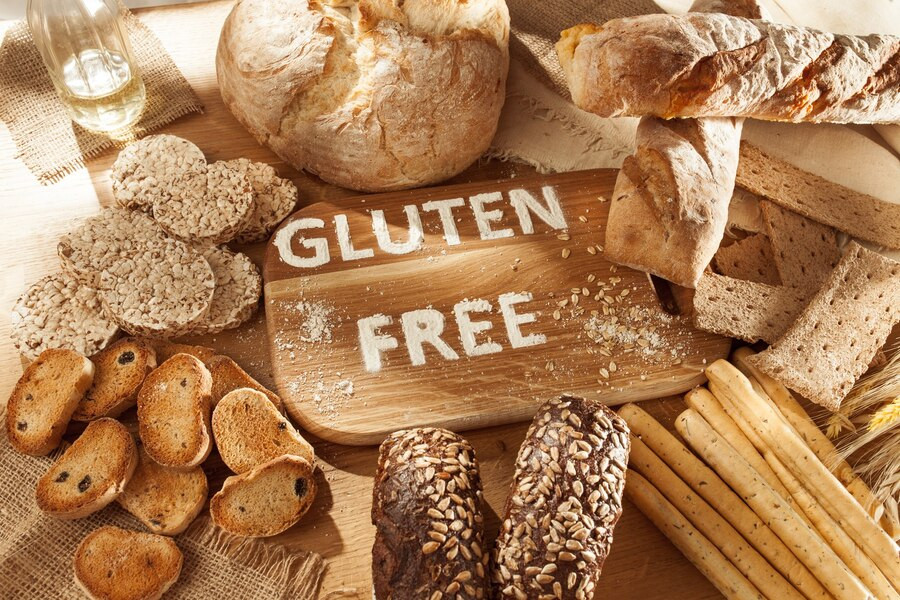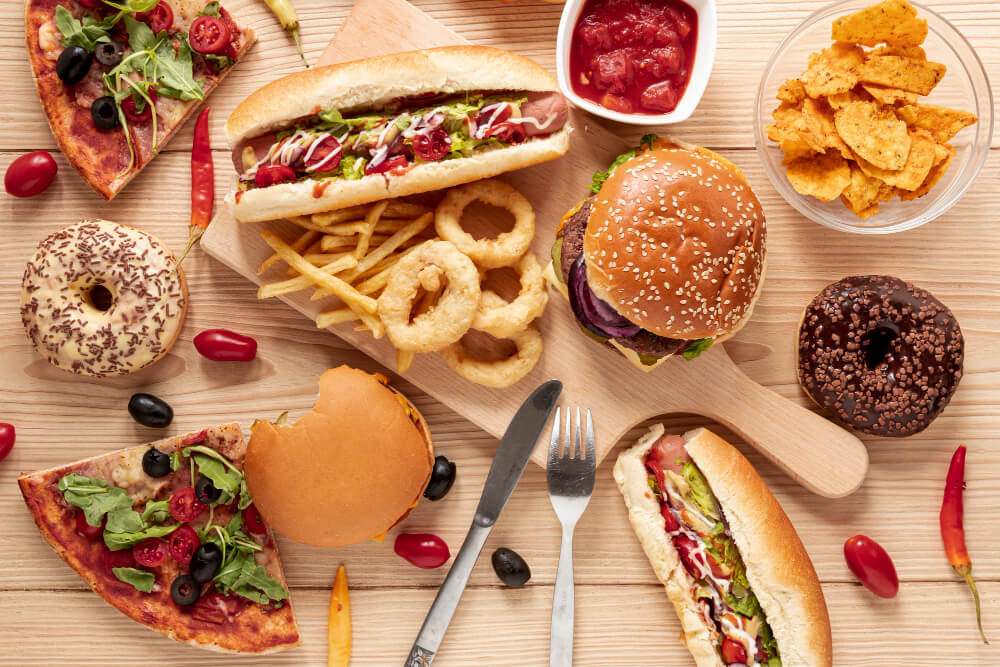Apakah Anda pernah mendengar tentang diet gluten? Diet ini telah populer dalam beberapa tahun terakhir dan banyak diikuti orang yang, bahkan belum banyak yang mengetahui manfaat kesehatannya.
Sebelum Anda memutuskan untuk mencoba diet gluten, adalah langkah bijaksana untuk tahu terlebih dahulu apa itu gluten dan risiko mengonsumsinya.
Apa itu Gluten
Gluten adalah sekelompok protein yang ditemukan secara alami dalam gandum, jelai dan gandum hitam. Kelompok protein ini memberikan tekstur yang kenyal pada produk roti dan elastisitas pada adonan.
Makanan yang mengandung gluten biasanya yang terbuat dari tepung atau olahan biji-bijian, di antaranya:
- Roti dan produk roti
- Pasta
- Sereal
- Kue dan kue kering
- Makanan ringan seperti keripik kentang
- Makanan olahan seperti saus salad, sup kalengan
- Bir dan anggur
- Saus pencampur seperti saus kedelai, saus hoisin, dan saus lainnya
Anda bisa mengetahui apakah makanan yang Anda konsumsi mengandung gluten atau tidak dengan melihat label makanan yang tertera di kemasan.
Baca Juga: Benarkah Diet Gluten Free Memang Lebih Sehat?
Risiko Mengonsumsi Gluten
Secara alami sebenarnya gluten tidak membahayakan. Bahkan, biji-bijian yang mengandung gluten menjadi bagian penting dari pola makan yang sehat karena kaya akan serat, vitamin, dan mineral.
Namun, memang ada sebagian orang yang perlu menghindari gluten karena kondisi kesehatan tertentu, di antaranya:
Orang dengan penyakit Celiac
Penyakit Celiac adalah kondisi autoimun di mana sistem kekebalan tubuh bereaksi terhadap gluten dan menyebabkan kerusakan pada lapisan usus halus. Mereka yang didiagnosis dengan penyakit celiac sebaiknya menghindari gluten sepenuhnya untuk mengelola gejala dan mencegah kerusakan usus lebih lanjut.
Orang dengan Intoleransi Gluten Non Celiac
Meskipun tidak didiagnosis penyakit Celiac, beberapa orang mungkin mengalami intoleransi gluten atau sensitivitas terhadap gluten. Kondisi ini biasanya ditandai dengan beberapa gejala, seperti:
- Sakit perut
- Anemia
- Kecemasan
- Kembung atau gas
- Sulit fokus
- Depresi
- Diare atau sembelit
- Kelelahan
- Sakit kepala
- Nyeri sendi
- Mual dan muntah
- Ruam kulit
Untuk mengelola gejala ini, orang dengan intoleransi gluten perlu menghindari makanan yang mengandung gluten dalam pola makan mereka.
Orang dengan gangguan pencernaan lainnya
Beberapa orang dengan gangguan pencernaan lain seperti sindrom iritasi usus besar juga perlu menghindari gluten untuk membantu mengurangi gejala yang dialami. Namun, hubungan antara gluten dan gangguan pencernaan masih perlu diteliti lebih lanjut.
Orang dengan alergi gandum
Alergi gandum adalah kondisi di mana sistem kekebalan tubuh bereaksi secara berlebihan terhadap protein tertentu yang ada di dalam produk gandum. Orang dengan alergi gandum biasanya mengalami gejala yang bervariasi seperti:
- Pembengkakan, gatal dan iritasi di mulut atau tenggorokan
- Bentol-bentol, ruam kemerahan dan pembengkakan di kulit
- Hidung buntu
- Sakit kepala
- Kesulitan bernapas
- Kram, mual dan muntah
- Diare
- Anafilaksis
Baca Juga: Ini Tandanya Anda Mengalami Intoleransi Gluten
Perlukah Menjalani Diet Gluten?
Perlu atau tidaknya menjalani diet gluten tergantung pada kondisi kesehatan dan preferensi pribadi. Apabila Anda mengalami kondisi kesehatan seperti yang disebutkan di atas sebelumnya, maka Anda perlu menjalani diet gluten.
Beberapa orang mungkin merasa lebih baik dengan menjalani diet gluten karena dampak penurunan berat badan, peningkatan energi, serta pengurangan nyeri sendi. Namun, penting untuk diingat bahwa keputusan untuk menjalani diet bebas gluten harus dibuat setelah berkonsultasi dengan dokter atau ahli gizi terlebih dahulu.
Meskipun banyak orang melaporkan perbaikan kesehatan setelah menghilangkan gluten dari diet mereka, hal ini tidak selalu baik untuk semua orang. Setiap orang memiliki kebutuhan nutrisi yang unik, dan penting untuk memastikan bahwa diet yang dijalani memenuhi kebutuhan nutrisi tubuh secara keseluruhan.
Untuk informasi lebih lanjut terkait diet gluten atau risiko menjalani diet gluten, Anda bisa memanfaatkan layanan konsultasi kesehatan dengan mengunduh aplikasi Ai Care melalui App Store atau Play Store.
Mau tahu informasi seputar nutrisi, makanan dan tips diet lainnya? Cek di sini, ya!
- dr. Monica Salim
Jillian Kubala, MS, RD (2024). Is Gluten Bad for You? A Critical Look. Available from: https://www.healthline.com/nutrition/is-gluten-bad
Selvi Rajagopal, MD, MPH. What Is Gluten and What Does It Do?. Available from: https://www.hopkinsmedicine.org/health/wellness-and-prevention/what-is-gluten-and-what-does-it-do
WebMD (2023). Foods High in Gluten. Available from: https://www.webmd.com/diet/foods-high-in-gluten
Mayo Clinic (2023). Celiac disease. Available from: https://www.mayoclinic.org/diseases-conditions/celiac-disease/symptoms-causes/syc-20352220
Cleveland Clinic (2021). Gluten Intolerance. Available from: https://my.clevelandclinic.org/health/diseases/21622-gluten-intolerance
Cleveland Clinic (2023). Irritable Bowel Syndrome (IBS). Available from: https://my.clevelandclinic.org/health/diseases/4342-irritable-bowel-syndrome-ibs
Cleveland Clinic (2022). Wheat allergy. Available from: https://www.mayoclinic.org/diseases-conditions/wheat-allergy/symptoms-causes/syc-20378897











